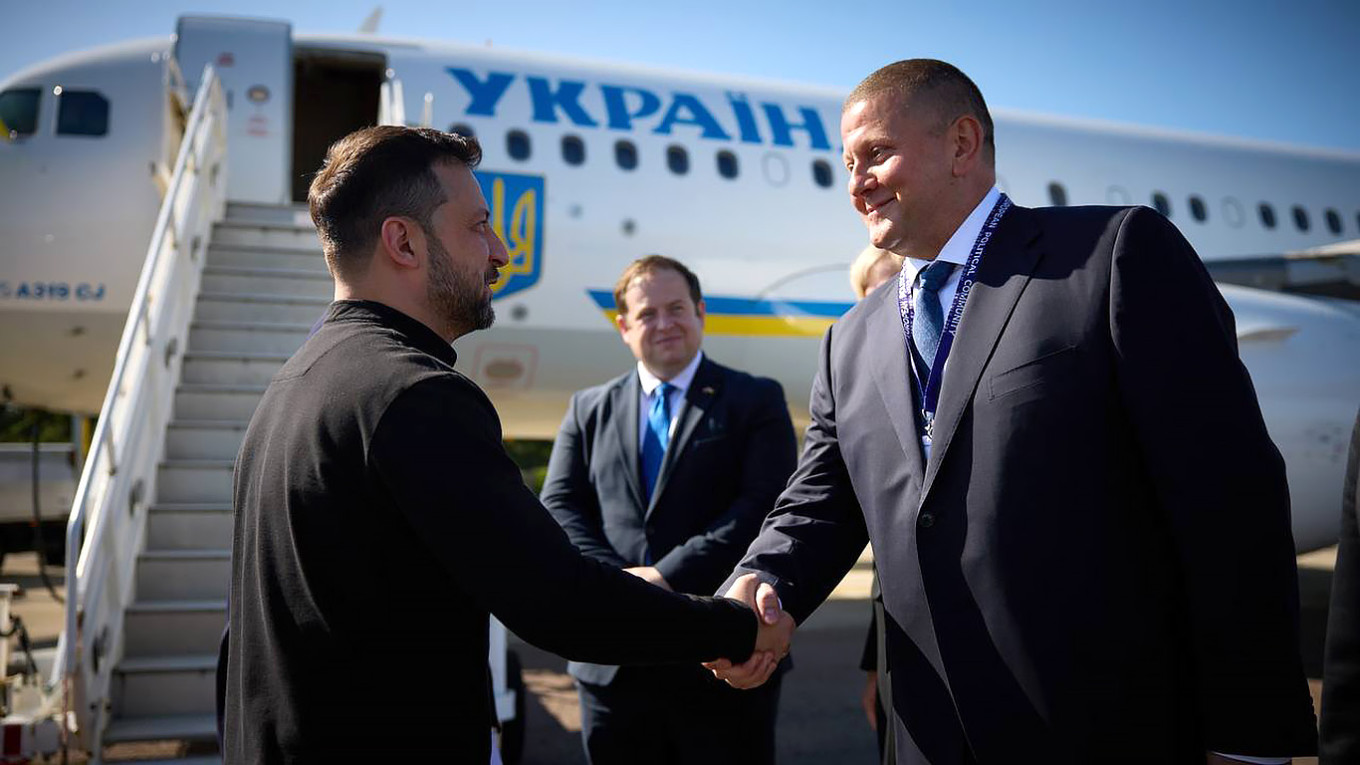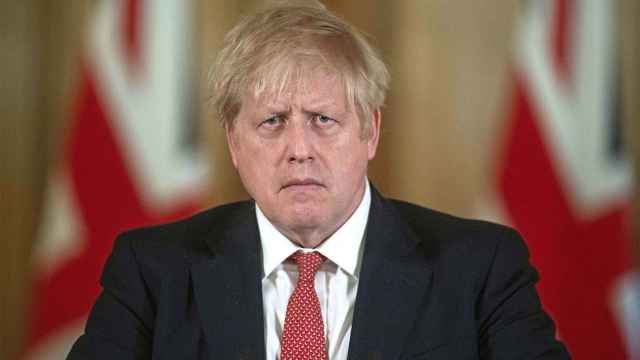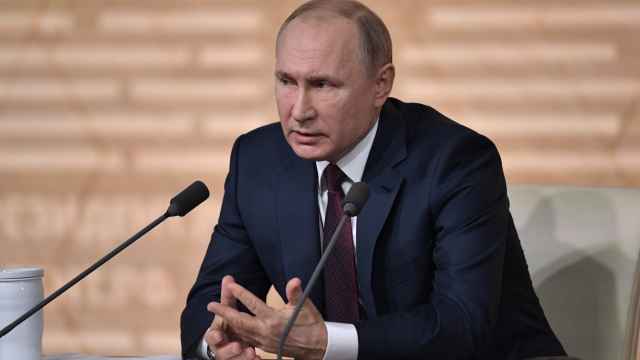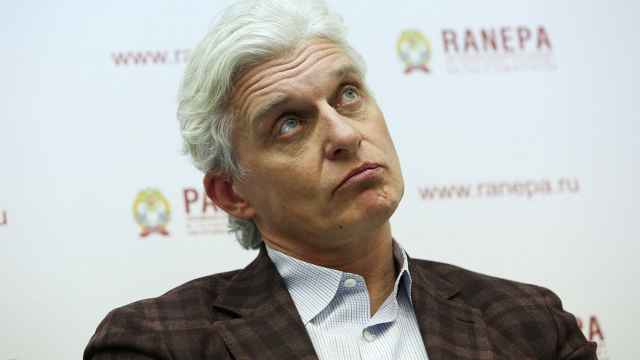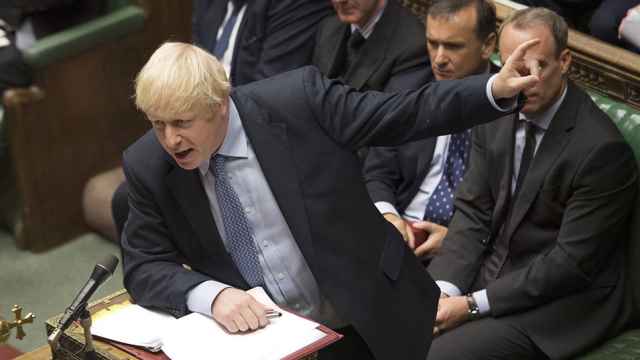The arrival of Valery Zaluzhny in London to take up his new role as Ukrainian Ambassador to Britain came as the Labour Party swept to power. It is a crucial point for Kyiv-NATO relations as the United States’ support for Ukraine looks in doubt once again.
The vacuum left by the departure of Vadym Prystaiko has been exasperating for Ukraine’s supporters in Britain. It took a painstaking nine months for his replacement to be announced, then a further five months for him to arrive in London.
Bilateral conversations between governments have of course continued unabated. President Volodymyr Zelensky’s top-down style of government might fail to see the need for diplomatic outriders, especially as he had strong disagreements with Zaluzhny about how the war should be fought when Zaluzhny was commander of Ukraine's armed forces. Yet this delay resulted in missed opportunities for Ukraine to press individual lawmakers over issues ranging from artillery shortages to identifying and returning missing children.
The good news for the Zaluzhny is that Labour has transformed into a grown-up party with international respect. The party Kier Starmer inherited had a core distrust of international institutions. In the aftermath of the full-scale invasion in 2022, former leader Jeremy Corbyn urged Western countries to stop arming Ukraine.
Fast forward five years and Starmer, within a week of being in Number 10, stood in Washington alongside fellow world Leaders declaring “enduring and unwavering commitment to the NATO alliance.”
And there is no doubt that the people now in power in the Labour Government are some of the staunchest supporters of Ukraine. Defence Secretary John Healey was a consistent backer of Ukraine while in opposition. Within 48 hours of the election, he was in Odesa, announcing a new package of lethal and non-lethal military aid for Ukraine. However, his visit was overshadowed by London rowing back on Starmer’s statement that Ukraine could use Storm Shadow missiles to strike targets inside Russia.
Foreign Secretary David Lammy has visited Ukraine several times while in Opposition and spoke immediately after the election of wanting to “double down on [Britain’s] commitment to Ukraine.” That includes brokering a new UK-EU Security pact, a reflection that if Trump returns to the White House, it will be Europe and the UK, not America that will have to drive forward military support for Ukraine.
On the backbenches, they have staunch Ukrainian supporters such as Alex Sobel, a regular visitor to Kyiv since the full-scale invasion, and even members of the party’s left wing such as John McDonnell, Clvie Lewis and Nadia Whittome.
The UK Friends of Ukraine has already been engaging with the new cohort of over 200 Labour Members of Parliament (P). In total, 12 Labour Candidates have so far backed our #UkraineMustWin election campaign, making public pledges on the need to increase our military and diplomatic support for Ukraine. Many have supported Ukraine through their local communities. David Taylor, newly elected MP for Hemel Hempstead, has already gone a step further and driven aid deliveries to Ukraine.
With all of that in mind, one might think Zaluzhny’s London exile would be an easy ride. Amongst friends, he can sit back and drink tea from the embassy in Holland Park.
Yet, while the first weeks of Starmer’s administration have been an opportunity to re-establish Britain on the world stage, Labour will have to work within the economic legacy of Britain's recent past, including the calamitous Liz Truss premiership.
The wily new Chancellor Rachel Reeves is walking an economic tightrope. She has promised to reverse Tory cuts and balance the budget without increasing the tax burden for middle-class earners.
Many newly elected Labour MPs have spent the last 14 years complaining about the social impact of Conservative austerity. They will want to see investment in Britain’s welfare system, social care and the National Health Service.
Yet Reeves knows even unpopular tax-raising decisions, such as to increase inheritance tax, won’t manage to raise the funds required. Offers. The Conservative party has long accused Labour of being irresponsible with the nation’s finances and is likely to have its eyes trained on the Treasury for any hint of overspending.
While austerity hit all areas of Government spending in 2010, defense spending bore a large brunt, being slashed from £57.0 billion ($7.4 billion) in 2010 to £44.5 billion ($57.75 billion) in 2017, adjusted for inflation.
Defense spending is not expected to the same level as 2010 until next year since Starmer’s predecessor Rishi Sunak promised in April to increase defense spending to 2.5% of GDP by 2030. Last week, Starmer dodged questions on whether he was sticking to the same timeline. Labour’s line since the election has been that the economy would have to grow before defense spending can rise.
As a decorated military general, Zaluzhny will know how integral Europe’s defense spending is to Ukraine’s long-term security. Former President Donald Trump’s selection of J.D Vance as his running mate for President only further throws down the gauntlet on Europe to stand up to Putin.
Lobbying efforts need to continue to focus on the vital importance of defense spending in an ever more turbulent world. Only by raising defense spending to 2.5% of GDP can we hope to provide our allies with the military aid and reassurance they desperately need.
Military support might be Zaluzhny’s bread and butter, but there are of course other pressing concerns. A longer-term solution will soon need to be considered for the Homes for Ukraine scheme, which helped thousands of Ukrainian refugees settle in Britain. Because the visas only last for three years, visas belonging to the first arrivals will begin to expire in February and March 2025.
As a former council leader, I saw first-hand how my community welcomed with open doors some of the 142,000 Ukrainians who moved to Britain under the scheme. Many of those original arrangements as hosts are no longer willing to house the refugees they took under their roof, leaving Ukrainians struggling to find affordable housing in the competitive rented sector.
The scheme has so far cost more than £2 billion ($2.6 billion). With competing interests in the Treasury, Zaluzhny will need to make a clear and conscientious case for this funding to continue.
Zaluzhny will spend time finding his feet in London and building his political network. A good ambassador is not only the eyes and ears of his Government but somebody who can open doors that politicians in a faraway capital perhaps cannot.
Anyone who watches boxing will know the impact a Ukrainian heavyweight can have. Zaluzhny is certainly a diplomatic heavyweight in London, albeit a novice. Everyone in Britain who is supporting the Ukrainian cause is hoping he can hit the mark.
A Message from The Moscow Times:
Dear readers,
We are facing unprecedented challenges. Russia's Prosecutor General's Office has designated The Moscow Times as an "undesirable" organization, criminalizing our work and putting our staff at risk of prosecution. This follows our earlier unjust labeling as a "foreign agent."
These actions are direct attempts to silence independent journalism in Russia. The authorities claim our work "discredits the decisions of the Russian leadership." We see things differently: we strive to provide accurate, unbiased reporting on Russia.
We, the journalists of The Moscow Times, refuse to be silenced. But to continue our work, we need your help.
Your support, no matter how small, makes a world of difference. If you can, please support us monthly starting from just $2. It's quick to set up, and every contribution makes a significant impact.
By supporting The Moscow Times, you're defending open, independent journalism in the face of repression. Thank you for standing with us.
Remind me later.


